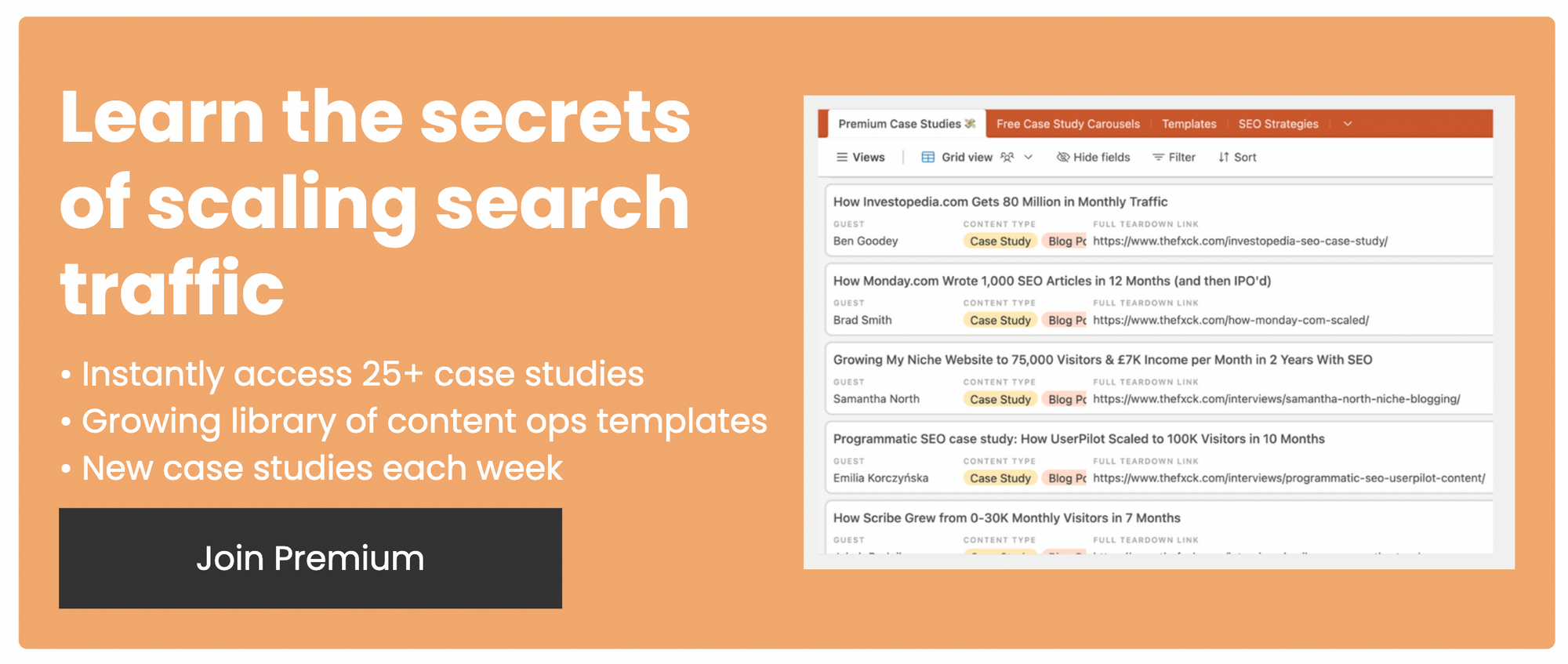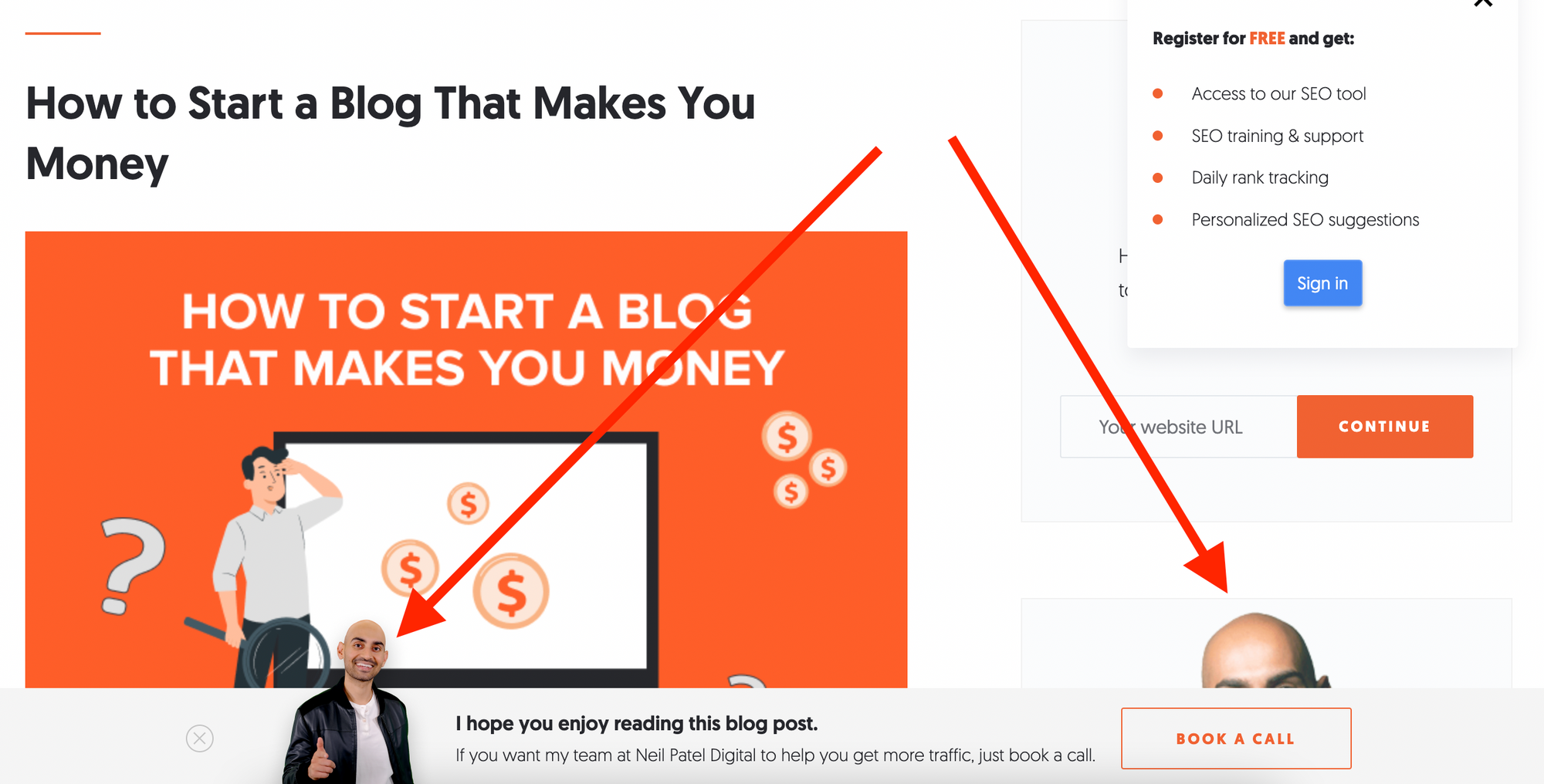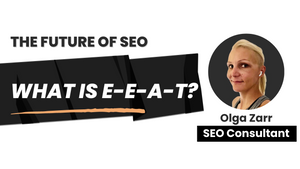In December 2022, a new E was added to E-E-A-T.
The new “E” stands for experience. In Google’s announcement post they stated that it was added to their search quality evaluations to match the needs of their users on some search terms.
“To better assess our results, E-A-T is gaining an E: experience. Does content also demonstrate that it was produced with some degree of experience, such as with actual use of a product, having actually visited a place or communicating what a person experienced? There are some situations where really what you value most is content produced by someone who has first-hand, life experience on the topic at hand.”
In this article, we explore E-E-A-T and what it means for the future of search.
This article is based on an interview on the How the F*ck SEO podcast with SEO consultant Olga Zarr.
Prefer to listen?
What is E-A-T? Does it Really Matter?
E-A-T stands for Expertise, Authoritativeness, and Trustworthiness, which are three factors that Google uses to evaluate the quality of content on a website.
While E-A-T is not a specific measurable metric or ranking factor, it is built into all their algorithms.
The concept of E-A-T is used by Google when they evaluate “if our search ranking systems are providing helpful, relevant information”.
“Our ranking system does not identify the intent or factual accuracy of any given piece of content. However, it is specifically designed to identify sites with high indicia of expertise, authority and trustworthiness.”—How Google Fights Disinformation
This sentiment is echoed by internal experts, like Google’s own Danny Sullivan:
Which aligns with what Google says on the matter:
“As a reminder, these guidelines are what are used by our search raters to help evaluate the performance of our various search ranking systems, and they don't directly influence ranking. They can also be useful to creators seeking to understand how to self-assess their own content to be successful in Google Search.”
In a nutshell, Google is saying: this is how we assess whether our algorithms are doing a good job, so if you also do this then you align with what we want to see in the SERPs.
What Does the New E in E-E-A-T Stand For?
“Experience: Consider the extent to which the content creator has the necessary first-hand or life experience for the topic. Many types of pages are trustworthy and achieve their purpose well when created by people with a wealth of personal experience.”—Google
The new “E” expands the scope of “quality” to include experience.
Sometimes you just want to be taught by someone with hands-on experience with a topic.
For example:
- Software reviews
- Fixing a complex illness
- Traveling to a new place
Anecdotally, there has been a rise in people adding “Reddit” to the end of their search queries. That brings up a Reddit thread forum where you will get a multitude of experiences from a wide variety of people.
User-generated content, forums, influencers, and videos are mentioned in Google’s Search Quality guidelines.
Trust: The Most Important Factor in E-E-A-T
“I think what also changed is that Google has shared that the most important factor of those is trust. Without trust, a website cannot have E-A-T. So if there is no trust, those other factors are not relevant.”—Olga Zarr
Google notes that trust is the most important part of E-E-A-T: “Untrustworthy pages have low E-E-A-T no matter how Experienced, Expert, or Authoritative they may seem”.
They go on to mention that “experience” is an important concept in an assessment of trust.
“Which would you trust: a product review from someone who has personally used the product or a "review" by someone who has not?”—Google
How Does This Apply to YMYL?
In YMYL topics like healthcare and finance, where content could have a negative real-world impact on well-being, are treated with additional scrutiny by Google.
To be trustworthy in a YMYL topic, a page must display a high level of expertise. However, Google’s new “E” allows for times when experience is more valuable than expertise.
“People turn to each other in times of need to share their own experience, seek comfort or inspiration, and learn from others. Factual information from experts and authoritative sources may not satisfy this need.”—Google
They go on to share examples of the need for “experience” vs “expertise” in YMYL spaces.

Delivering E-E-A-T: How to Show “Experience”
For these topics, you should think like a reader.
- What conveys experience?
- What conveys trust?
Here are a few examples of things we think could help show experience on a page:
2/ Make it obvious who the content creator is
“Google has been highlighting that they are now going to look at who is behind the site, who is the owner of the website, and who is the content creator.
So I would say what you should really focus on here is to make sure that you are very transparent about who wrote this content and what kind of qualities, what expertise, what experience they have.”—Olga Zarr
To display E-E-A-T try these:
- Create videos to show you’re real
- Put your image on the website
- Explain your experience
One example is Neil Patel's site:

Another example comes from Investopedia (full case study and teardown of Investopedia's SEO strategy here):

2/ Make it obvious you really used a product
If you’re doing a product review and *actually* used the product then your reader expects you to:
- Talk in the first person
- Show screenshots
- Make videos or GIFs of something working
- Give your opinion on specifics
With the rise of ChatGPT and other AI tools, I think it’s especially important that ALL your content does these things now.
In the coming weeks, months, and years experience-led insights might be the only way we can separate ourselves from AI content.
3/ Use Author Schema
I've been encouraging all my clients to implement author schema to all their blog posts.
It's quite a simple additional to the HTML header of your website and lets you declare:
- Author name
- Where they work
- Their LinkedIn profile
If you have experts writing your content, it's a quick win to declare who they really are.
Use my author schema template here.
Can I Just Fake E-E-A-T?
The short answer is yes, probably. But it will likely take just as long to fake it as to actually do it for real.
In the long-term, as Google gets better and better at identifying and stamping out disinformation, it’s a fool's errand to try and trick them.
Besides, as a real human, isn’t it easy to spot fake trust, experience, and expertise? Ultimately your content should be built to inspire action and not win traffic.



